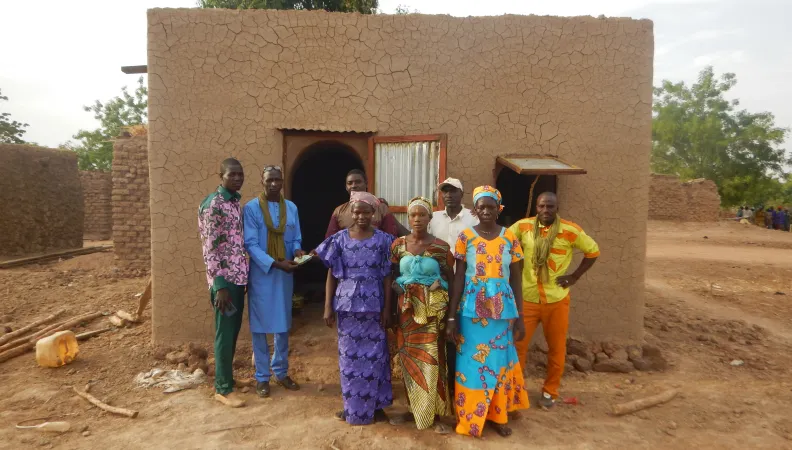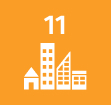Share the page
Carbon credits to finance sustainable housing (ACACIAS)
Project


-
Project start date
-
Status
In progress
-
Estimated date of project termination
-
-
Project financing date
-
-
Financing duration
-
5 years
-
Type of program
-
FFEM
-
Global financing amount
-
€ 1700000
-
FFEM financing amount
-
€ 850000
-
Project lead member institution(s)
-
Ministry of the Ecological Transition, Biodiversity, Forests, Sea and Fisheries
-
Country and region
-
Burkina Faso, Benin
-
Type of financing
-
Beneficiaries
-
The Nubian Vault Association (Association La Voûte nubienne)
-
Type of beneficiary
-
NGO, Foundation


Through the ACACIAS project, the FFEM is supporting the implementation of a carbon credit mechanism for developing sustainable construction in Benin and Ghana.
Context
Since 2000, The Nubian Vault Association has given rural families in the Sahel access to decent housing that is equally adapted to socio-economic and climate realities. For this, the Association employs a traditional architectural process: the Nubian vault. This technique replaces sheet metal roofs with vaulted roof structures, supported on raw earth bricks. These constructions employ neither wood - which is scarce - nor sheet metal nor cement, which is costly and has a high carbon footprint. The goal of the ACACIAS project is to disseminate this process at large scale through the implementation of a carbon credit mechanism. This mechanism allows recurring, long-term income to be generated to finance incentives for Nubian vault eco-construction.
Description
There are 4 components to the project:
- Disseminating eco-construction incentives to Sahelian families to maximise the volume of carbon credits to place on the voluntary carbon market once certification is obtained.
- Initiating carbon certification.
- Implementing accreditation of co-beneficiaries to maximise the sale of “Nubian vault” carbon credits.
- Identifying initial clients and pre-selling carbon credits to generate income at the end of the project.
Outcomes
- The provision of sustainable income to finance a growing number of eco-construction incentives for Sahelian families.
- The acceleration of the “Nubian vault” market and multiplication of its socio-economic and environmental impacts.
Innovative and exemplary features
The ACASIAS project links the trading of carbon credits with the financing of eco-construction incentives. These incentives boost the dissemination of the Nubian vault technique and its take-up by populations in the Sahel. The project is also part of a virtuous dynamic in which the carbon reduction in Nubian vault construction results in the issuing of carbon credits, the sale of which will finance further incentives. By providing work for masons and enabling families to access low-carbon constructions, these incentives favour economic development and help local populations adapt to climate change. The ACASIAS project also develops a new carbon certification methodology for construction, a sector where investment remains scarce.
Sustainable Development Goals
ODD11 Sustainable cities and communities

ODD13 Climate action



